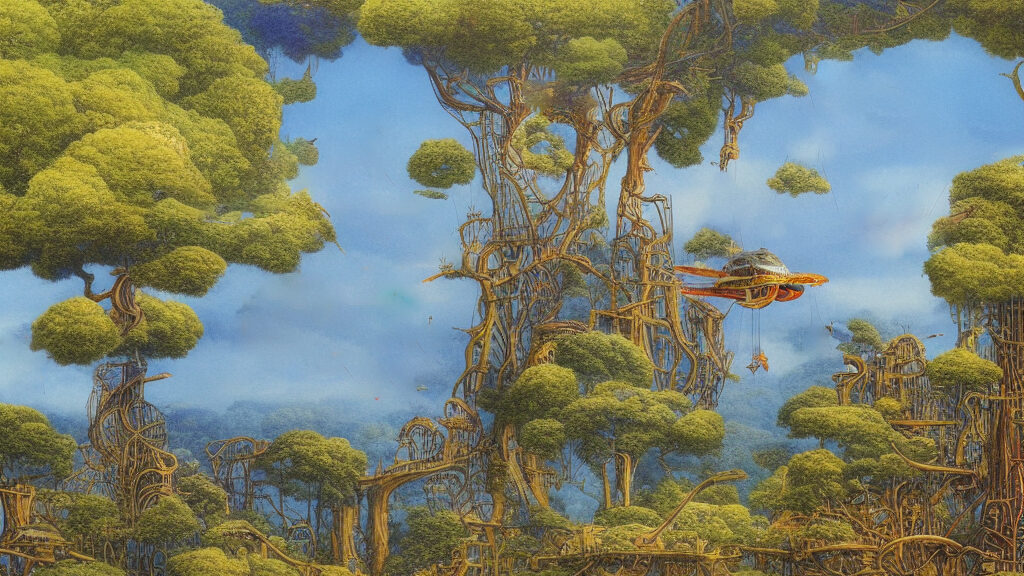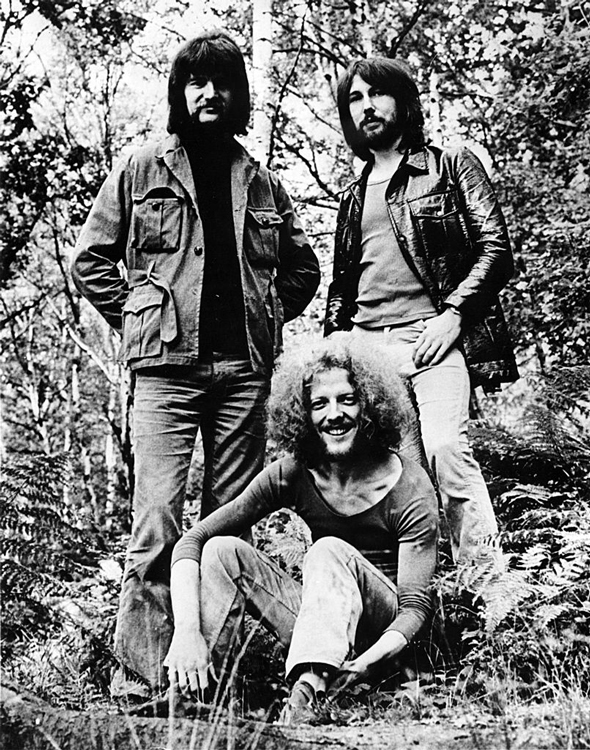Jade Warrior was a British progressive rock band that formed in 1970 and consisted of guitarist Tony Duhig, flute player and multi-instrumentalist Jon Field, along with vocalist and bassist Glyn Havard as founding members. The band signed a deal with Vertigo and released their debut album, “Jade Warrior”, which established their signature sound of tranquil and loud contrasts, with Field’s gorgeous, multi-layered flutes and percussion intertwined with Duhig’s cutting guitar.
Their second album, “Released”, saw them sharpen their rock edge and highlighted the contrasts within their sound, with appearances from Allan Price on drums, and guest saxophonist Dave Conners. “Released” represented a significant advancement from the group’s initial offering, showcasing timeless cuts like ‘Trio-Tusked Sovereign’, ‘Gaze Fixed Upon Thee’, and the sprawling 14-minute epic ‘Baranzibar’.
In 1972, “Last Autumn’s Dream” saw the band creating and perfecting an innovative style with a Jethro Tull flavor and significant hybridization of what we’d call world music influence today. One could make a strong case that ‘Last Autumn’s Dream’ represented Jade Warrior’s crowning achievement during their stint on the Vertigo Records roster, featuring timeless cuts like ‘A Winter’s Narrative’, ‘Serpent’, ‘Murky Waterway’, and ‘Born Of The Solar Breeze’.
The band toured the USA at the time. Despite having enough material for two more albums, Vertigo cancelled their contract after sensing an imminent change in the market, and the band split up.
Jade Warrior reunited in 1974 under the guidance of Duhig and Field. That very year, Steve Winwood encouraged Chris Blackwell from Island Records to give Jade Warrior a listen, and the band secured a contract with Island during the same period. Jade Warrior put out four records with Island Records and refined their sound over time. In terms of style, Jade Warrior had evolved into an instrumental force, blazing a trail with a distinctive combination of ambient progrock and ethnic Japanese motifs that swiftly garnered critical acclaim.
Initially, they released “Floating World” (1974), an intricate thematic album centered around the Japanese Ukiyo philosophy. The songs are based on two interconnected and interlaced series of compositions.
Next came “Waves” (1975), another concept album dedicated to the final whale, which featured Steve Winwood on piano and Moog. The album was made up of a single composition divided into two parts, each of which took up one side of an LP.
“Kites” (1976), recorded with guest musicians such as Fred Frith and Clodagh Simmons of Mellow Candle, displayed the band’s most abstract and progressive side. Each side of the album was essentially a long piece, inspired by Paul Klee’s painting “The Kingdom of the Air” and the wandering Zen master Teh Ch’eng of 9th century China.
The fourth and final Island album, “Way of the Sun,” was a spatial, cinematic musical voyage to Latin America. Perhaps one of their finest releases, this album was an incredibly evocative masterpiece, drawing inspiration from the lore of the Incan civilization and demonstrating Field and Duhig’s consummate artistic prowess.
Personal problems, illness, and Duhig’s move to establish a recording studio delayed the release of the next album until 1979 when the compilation “Reflections” was released. It contained some unreleased tracks from their Vertigo period. Not until 1984 did new material come out with the release of “Horizen” on Pulse Records. Duhig wrote all the music for Horizen, and Field only played on a few tracks, with Gowan Turnbull replacing him for the majority of the album.
Earthsounds released “At Peace” in 1989, an album recorded solely by the duo at Duhig’s studio in just four days. At Peace was considered the least representative of the Jade Warrior albums, being close to ambient and even new-age music.
After a lengthy hiatus, Jade Warrior started their next project with new band members Colin Henson (guitar) and Dave Sturt (fretless bass). However, the band was struck a blow when Tony Duhig passed away suddenly in 1990 before contributing to the album. The band decided to continue, and the result was Breathing the Storm, released in 1992 on Red Hot Records. The trio followed up with “Distant Echoes” in 1993, featuring guest appearances from Theo Travis of Gong (saxophone), David Cross of King Crimson (violin), and Tom Newman.
On June 30th, 2008, Jade Warrior, as a trio, released their fourteenth studio album, “Now,” on the Repertoire label.
David Duhig, the younger brother of Tony Duhig, played on several of Jade Warrior’s albums and in every live gig Jade Warrior ever performed. He died on December 1, 2021.
In 2023, Esoteric Recordings/Cherry Red Records released a boxed set titled ‘Wind Borne – The Island Albums 1974-1978’ that featured newly remastered versions of ‘Floating World’, ‘Waves’, ‘Kites’ and ‘Way Of The Sun’.
In the year 2023 as well, Esoteric Recordings unveiled a double album of long-lost recordings made in 1973 for the Vertigo label, but had been regrettably rejected by Vertigo. Although a handful of cuts surfaced on Vertigo anthologies, ‘Eclipse’, and another LP titled ‘Fifth Element’ never saw the light of day. The fresh release from Esoteric Recordings titled Eclipse / Fifth Element, Remastered 2CD Edition collects these 1973 recordings and presents them across two CDs, complete with a lavishly illustrated booklet and a brand-new essay.
Discography
Jade Warrior (Vertigo, 1971)
Released (Vertigo, 1971)
Last Autumn’s Dream (Vertigo, 1972)
Floating World (Island Records, 1974)
Waves (Island Records, 1975)
Kites (Island Records, 1976)
Way of the Sun (Island Records, 1978)
Horizen (Pulse Records, 1984)
At Peace (Earthsounds, 1989)
Breathing The Storm (Red Hot Records, 1992)
Distant Echoes (Red Hot Records, 1993)
Floating World, Waves, Kites, Way Of The Sun (Eclectic, 2006)
Now (Repertoire Records, 2008)
Floating World, Waves, Kites, Way Of The Sun, remastered (Eclectic, 2006)
Eclipse / Fifth Element (Esoteric Recordings, 2023)
Wind Borne – The Island Albums 1974-1978 (Esoteric Recordings, 2023)

